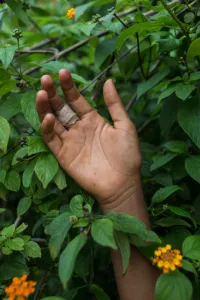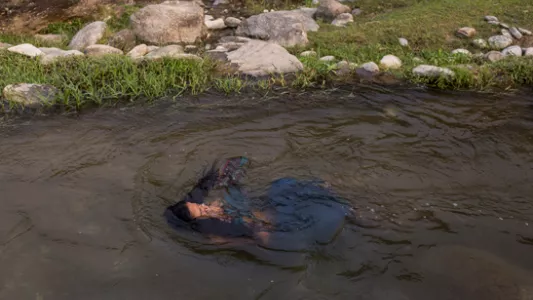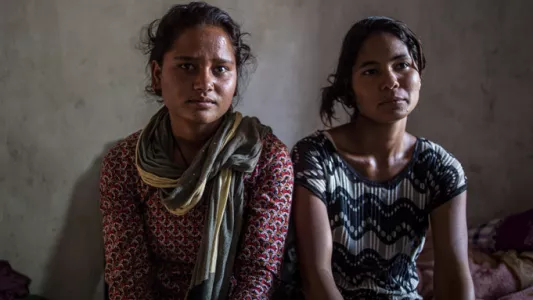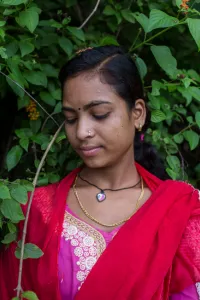Uma Bista (@uma.bista) is a photographer born and living in Kathmandu, Nepal travelled west to discover from up close what the women in that part of her country experience during Chhaupadi.
Chhaupadi is the name for the practice where women are excluded from their families and society while bleeding, up to seven days a month, from the moment they first start bleeding until menopause. This tradition is most common in the western part of Nepal, and originates in the superstition that women are temporarily impure while bleeding. As a result they have to follow a series of rules and regulations, in order to keep the gods content and prevent them from extending punishment on the community to show their discontent.

In practice these rules mean the women are banned for days from their homes into huts built for the specific purpose, without windows or doors, without much furniture or comfort. Often the women sleep on very little but the ground, during all seasons. A consequence of this is that many are affected by cold, try to light a fire inside and suffocate because of the smoke. Otherwise they risk dying of snakebites, or hygienic diseases - they are not allowed to use the communal water sources or rivers to drink or bathe, and access to clean water is scarce. They live on dry foods, rice and salt since milk based product are not permitted. According to the superstition any product that comes from an animal can cause the impurity to flow back to the animal and contaminate it, which is to be avoided at all costs.

Aside from the physical consequences, these women are mentally scarred for life. From a very young age they are taught that they are not as valuable when bleeding as others, that they deserve to be cast away and treated in less than humane ways, that they don’t belong in society, in their religion or even in school merely out of fear of angering the gods of old. Keeping girls out of school only facilitates the continuation of the practice, the lack of information leaves them without tools to combat the beliefs or get out of the society that thrives on keeping women small.

The practice was outlawed in 2005, and has been punishable by law since 2017, but things haven’t changed very much despite attempts at containing the damage being done to these women. The problem however, lies deeper than punishing someone for forcing a bleeding woman into a hut. One of the questions asked is if the fear of punishment by law outranks the fear of punishment by the gods, but the problem goes still deeper than that. A fundamental believe system has to be challenged to make the community understand that being on your period does not equal impurity, nor that the gods will take vengeance if these women aren’t excluded from society. The psychological damages done to these women will take time to heal as well, they suffer from deep rooted fears of their own family, they don’t find solace in a religion that stigmatises them all the time, and the loneliness they experience doesn’t just last during the banishment but extends into their daily lives. Being stigmatised like this leaves scars that take time and support to heal.

In Our songs from the Forest Bista approached the situation from a unique perspective, beyond that of the shed as the main feature of the taboo, as is the common way of reporting on the problem. She shows the women themselves, the individuals living this practice. This was only possible because she spent time with the women, tried to understand their fears and concerns, as well as what brings them pleasure or comfort. This way the women are not unknown creatures that are incapable of questioning the situation, they are humans that seek agency in a situation where they are not allowed any. They search for freedom in a patriarchal society where family, community and religion decide how they should live and be.

In this series, Bista shows them in the forest where they get to relax and enjoy a freedom unknown to them in their villages. There they don’t have to fight against prejudices or societal norms, but get to be themselves. Choosing to show these women in a place where they control the narrative themselves is an act of sisterhood unlike any other. Bista allows them to challenge the practice on their own terms, rather than being portrayed as merely victims in a patriarchal society.




